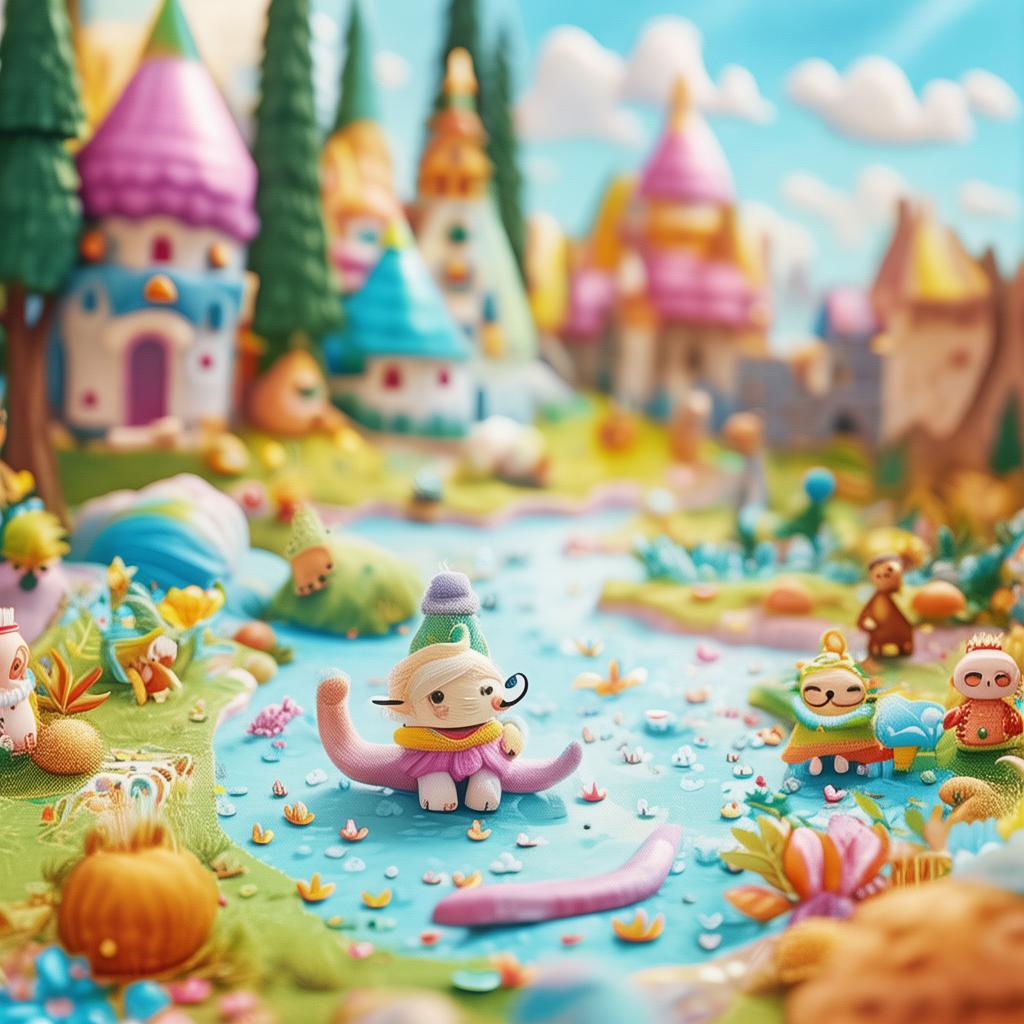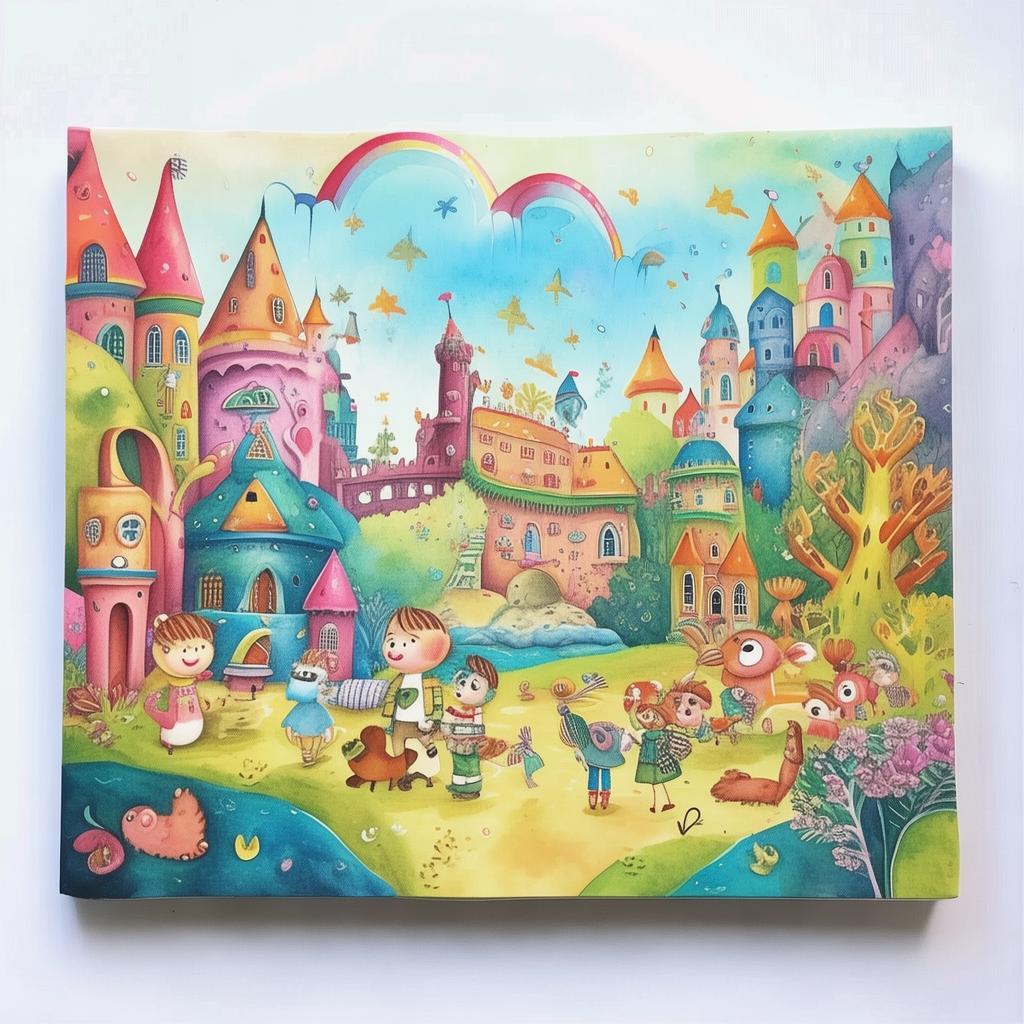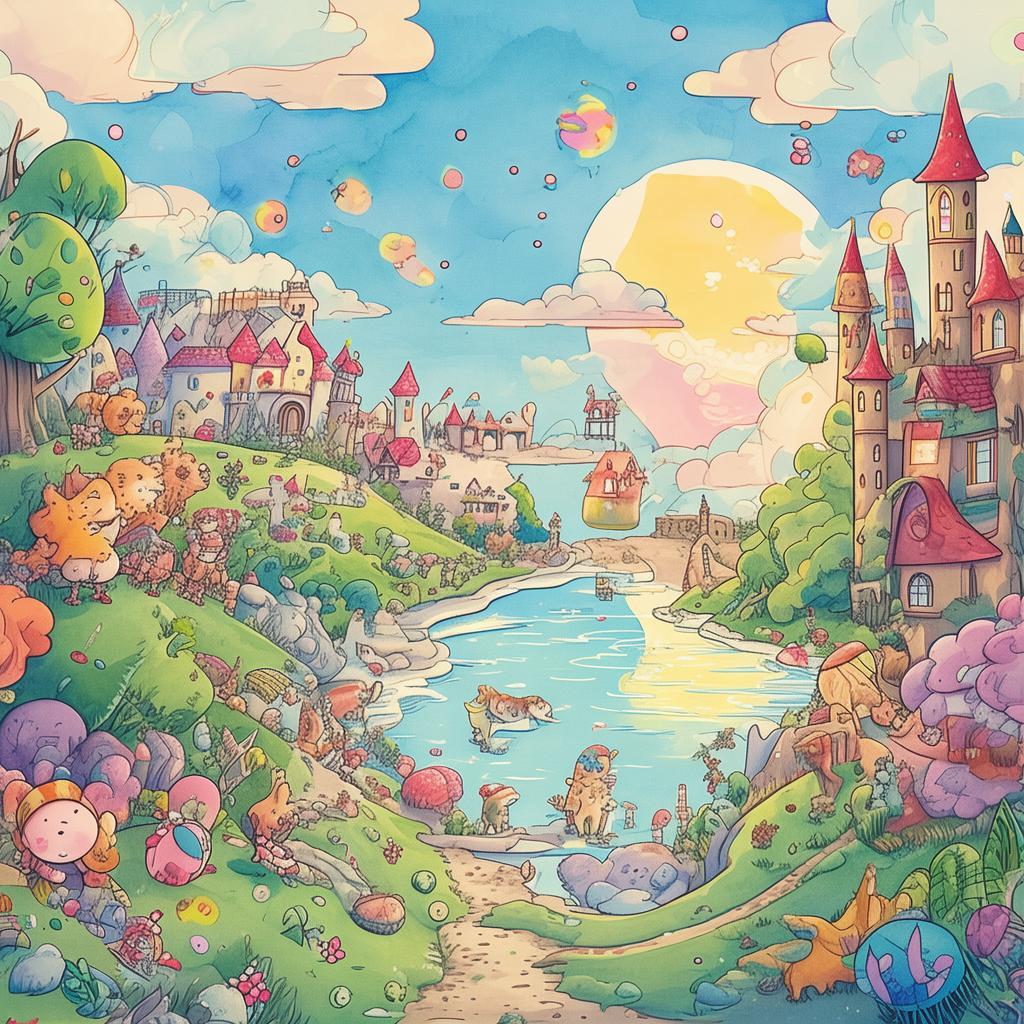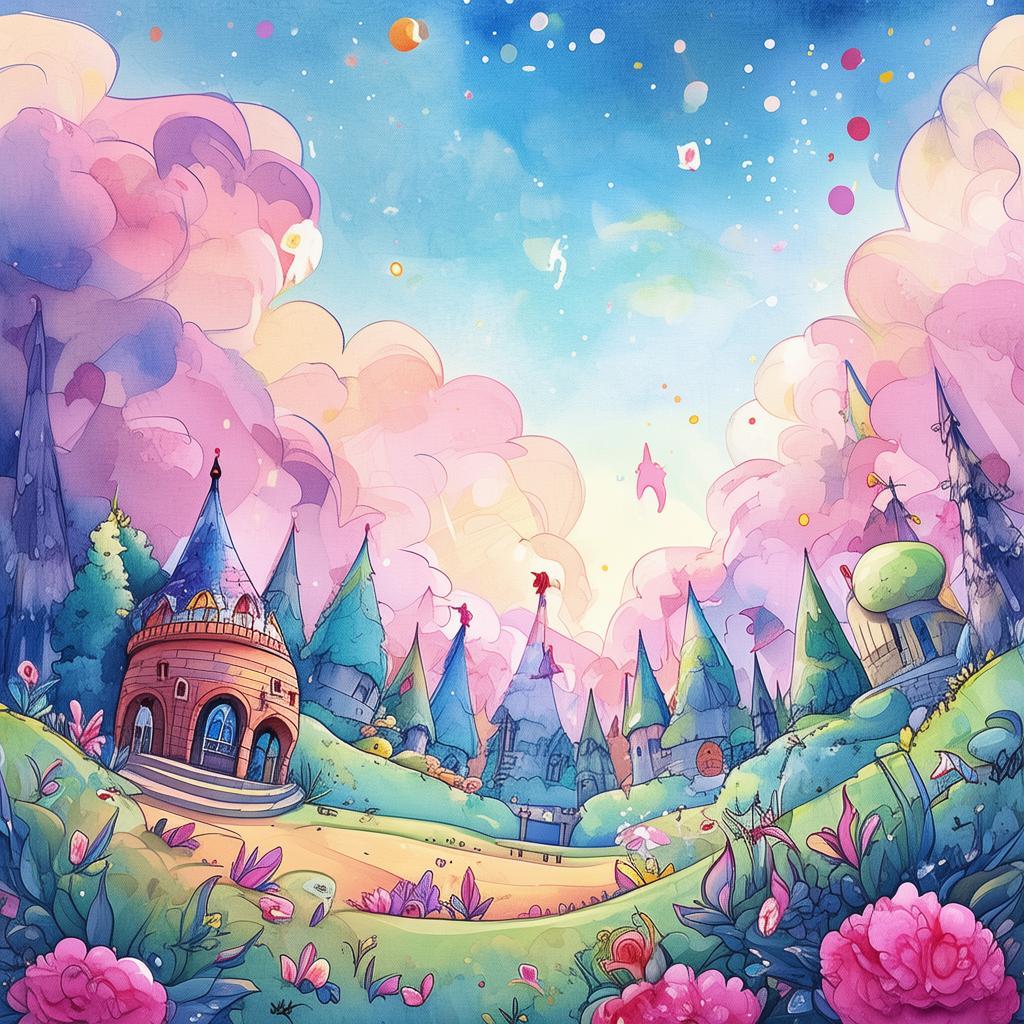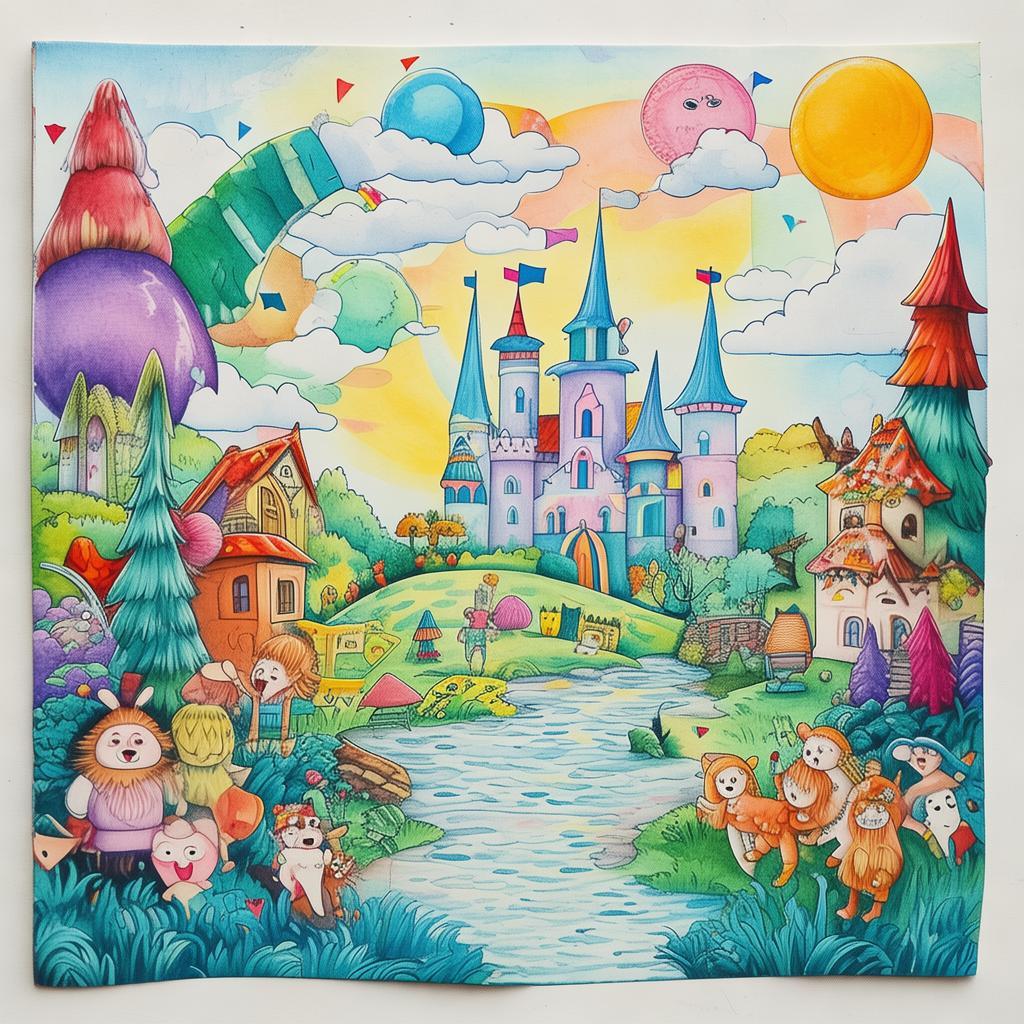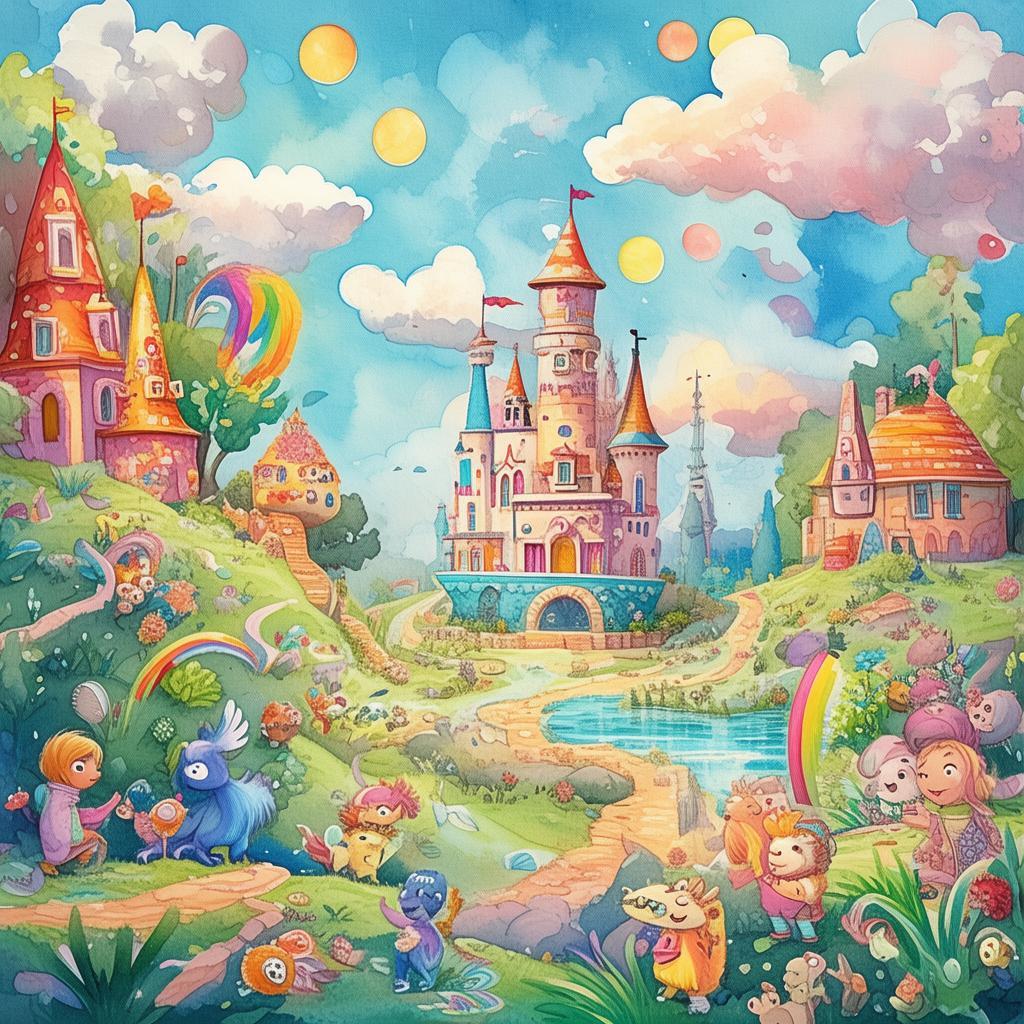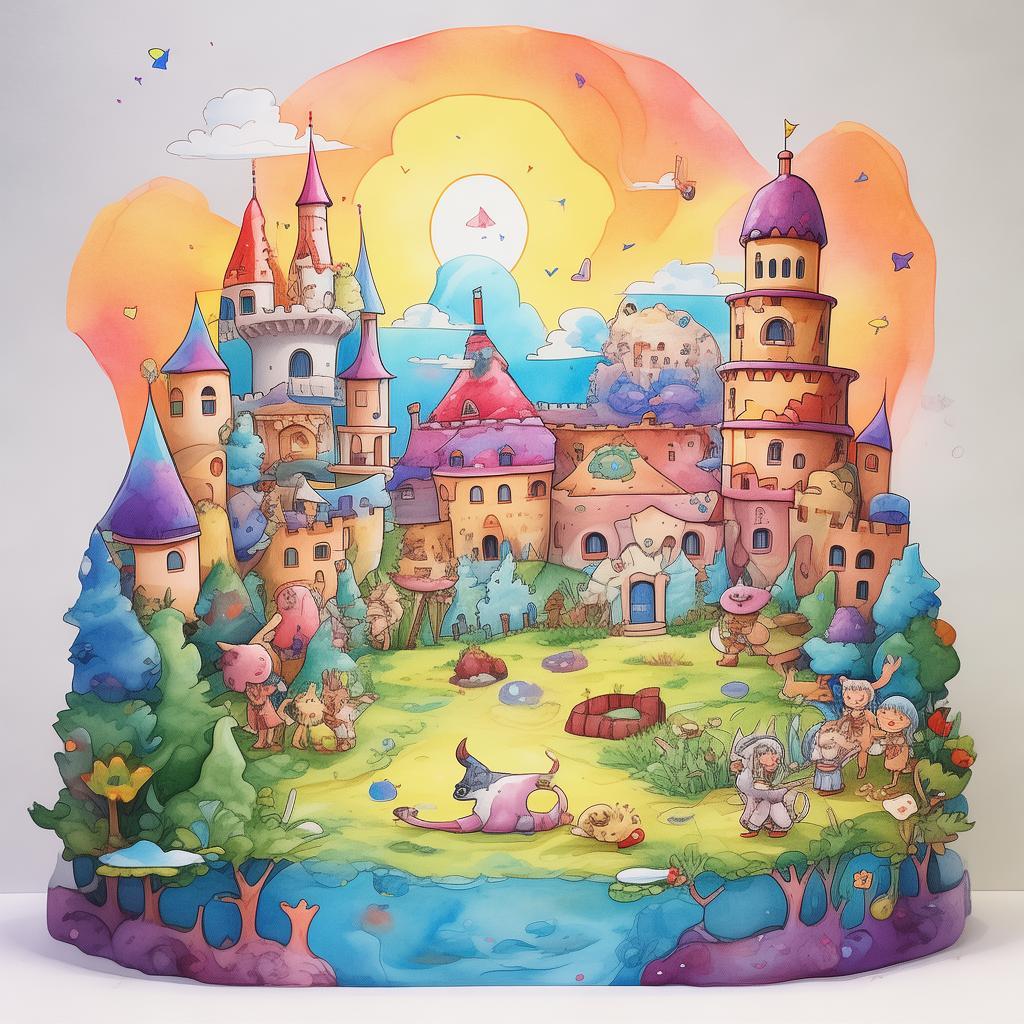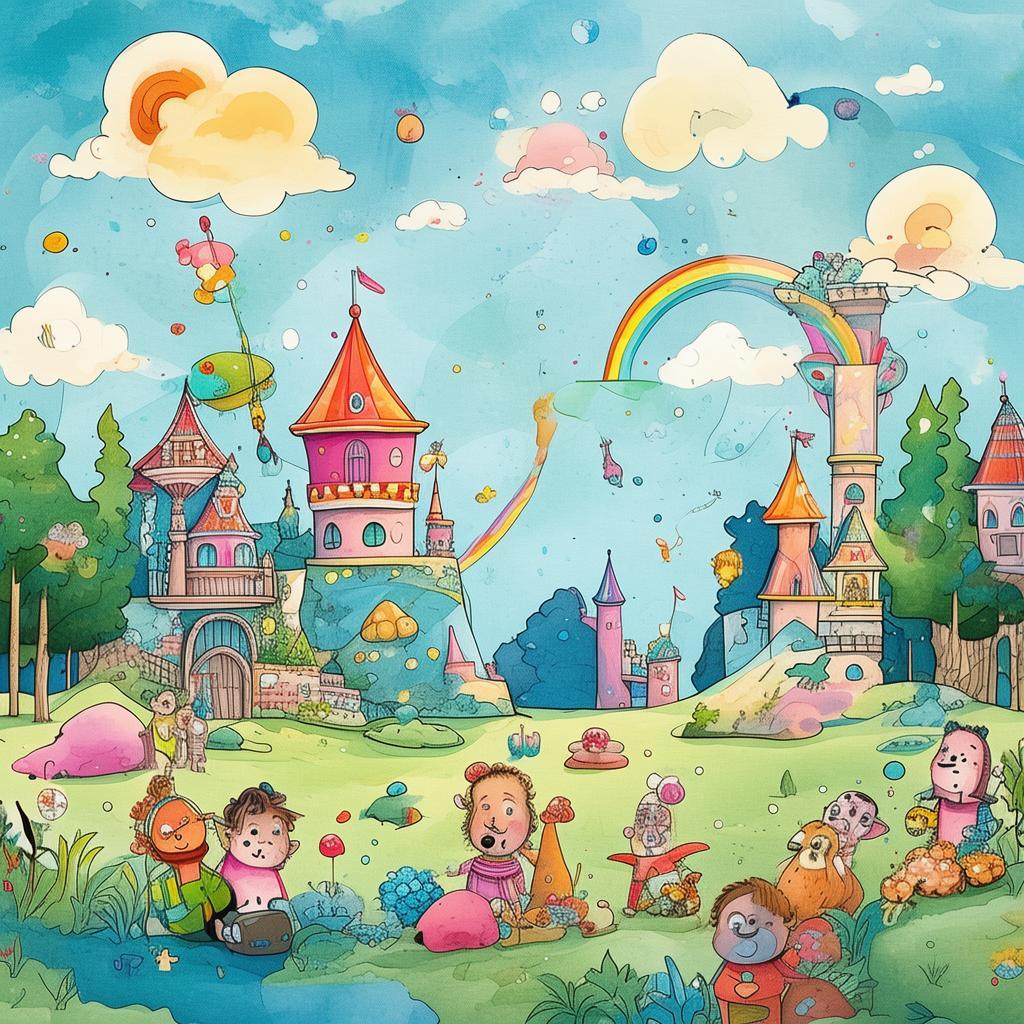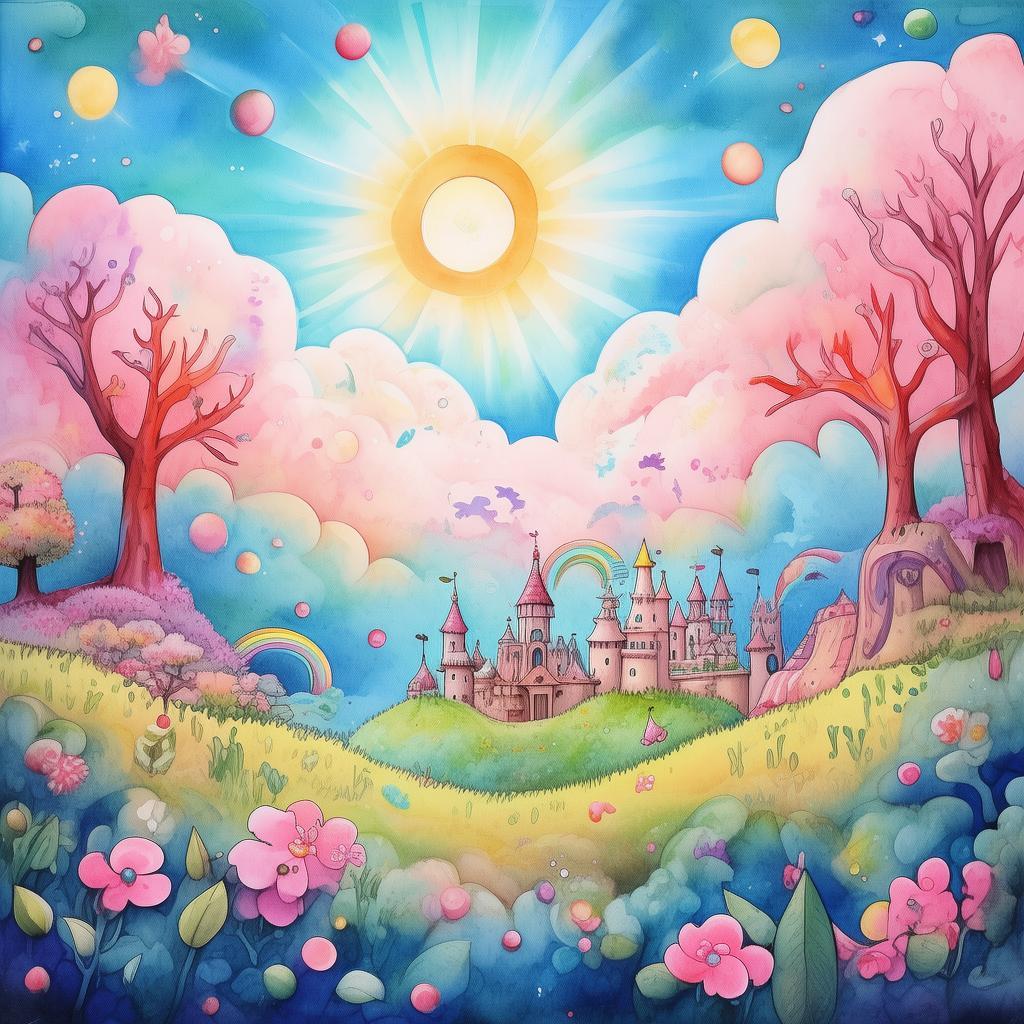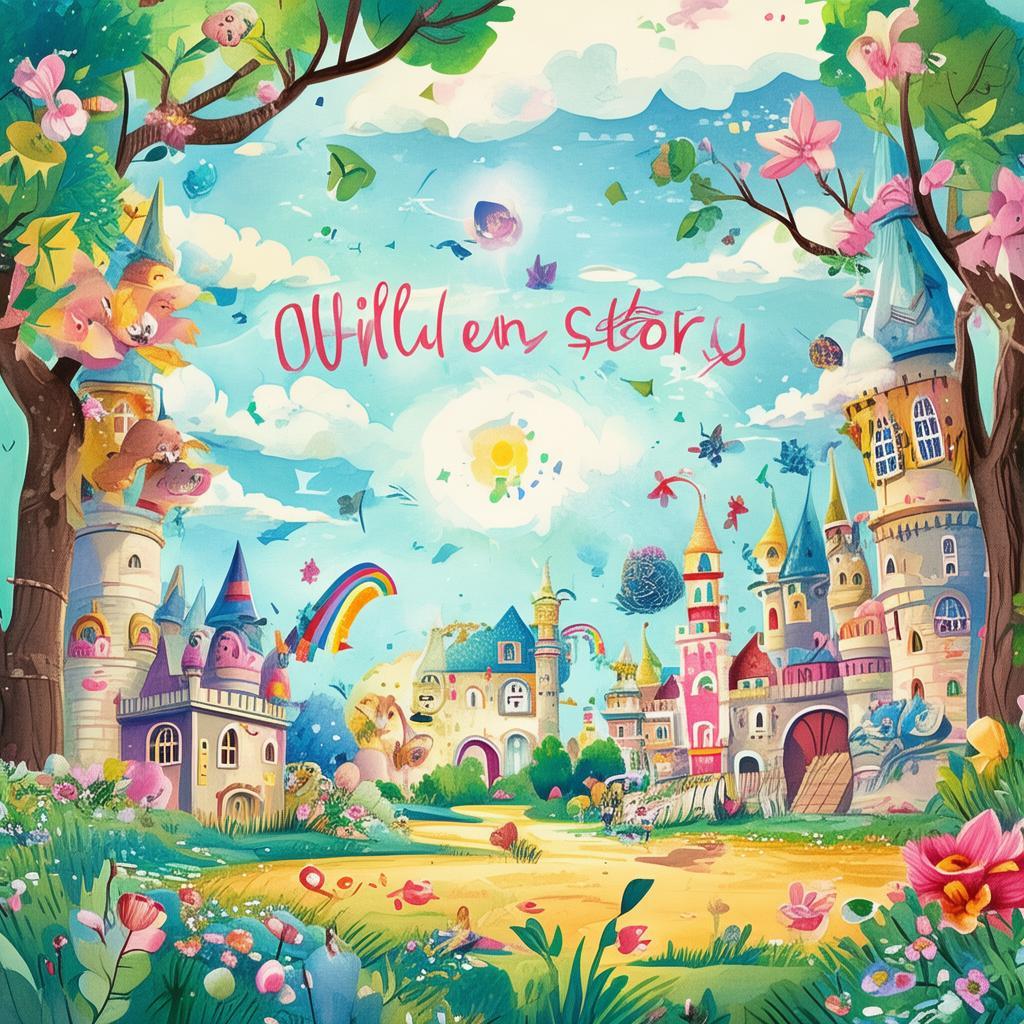The Mysterious Field: A Hidden Treasure
The sun dipped low over the tranquil village of Jingting, casting long shadows over the rows of lush rice paddies. The village was a haven of greenery, with its cobblestone paths winding through bamboo groves and small, thatched cottages. The villagers, mostly rice farmers, were known for their simplicity and warmth, but there was one among them who carried a secret deeper than the roots of the rice plants: the rice farmer's son, Ming.
Ming was an average boy with an extraordinary curiosity. His eyes sparkled with the kind of wonder that only a child could possess. One rainy afternoon, while he was playing near the rice fields, he stumbled upon an old, crumpled piece of paper. The paper was yellowed with age and water-stained, but it caught his attention. As he dried it, he saw a faint drawing of a map with a series of cryptic symbols.
"What's this?" Ming whispered to himself, his heart pounding with excitement.
The map had three symbols, each leading to a different part of the field. Ming's curiosity was piqued, and he knew he had to find out what the symbols meant. He shared his discovery with his family, but they only chuckled and told him it was just a piece of old paper, probably left behind by a previous owner of the land.
Undeterred, Ming set out to decipher the map. The first symbol, a leaf, led him to a particularly lush part of the field. He carefully followed the path it outlined, stepping over puddles and around roots. After a while, he found a small, weathered stone that had the same leaf symbol etched into it. He pried it open to reveal a small, wrapped bundle.
Inside the bundle was a small, intricately carved wooden box. Ming's breath caught in his throat as he opened the box to find a shiny, golden key. The key had a symbol that matched the second symbol on the map: a small, half-moon.
Ming's heart raced as he realized he was closer to the truth than he ever imagined. He followed the second symbol to the middle of the field, where he found another stone with a half-moon etched into it. Underneath the stone was a hidden compartment, and he inserted the key. The stone swung open to reveal a small, hollow tube.
Ming pulled out a tiny, shimmering stone that glowed faintly. The third symbol on the map was a tree, and he knew this stone had to lead him to the tree. He followed the path to the far edge of the field, where a magnificent old tree stood, its branches stretching high into the sky.
Ming approached the tree and placed the stone in a crack at its base. The tree seemed to come to life, its leaves rustling with a soft, whispering sound. A hidden door opened in the trunk, and Ming stepped inside, his heart pounding with a mix of fear and excitement.
The door led to a narrow, winding passageway. Ming followed it, the walls of the passage glowing faintly with a soft, otherworldly light. At the end of the passage, he found himself in a small, dimly lit room. In the center of the room was a pedestal with a large, ornate box on top.
Ming approached the box and opened it to reveal a chest filled with gold coins and jewels. But that was not the treasure he sought. On the bottom of the chest, he found a small, leather-bound book. He opened it to find a family tree with a branch that ended with his name, Ming, and a note attached.
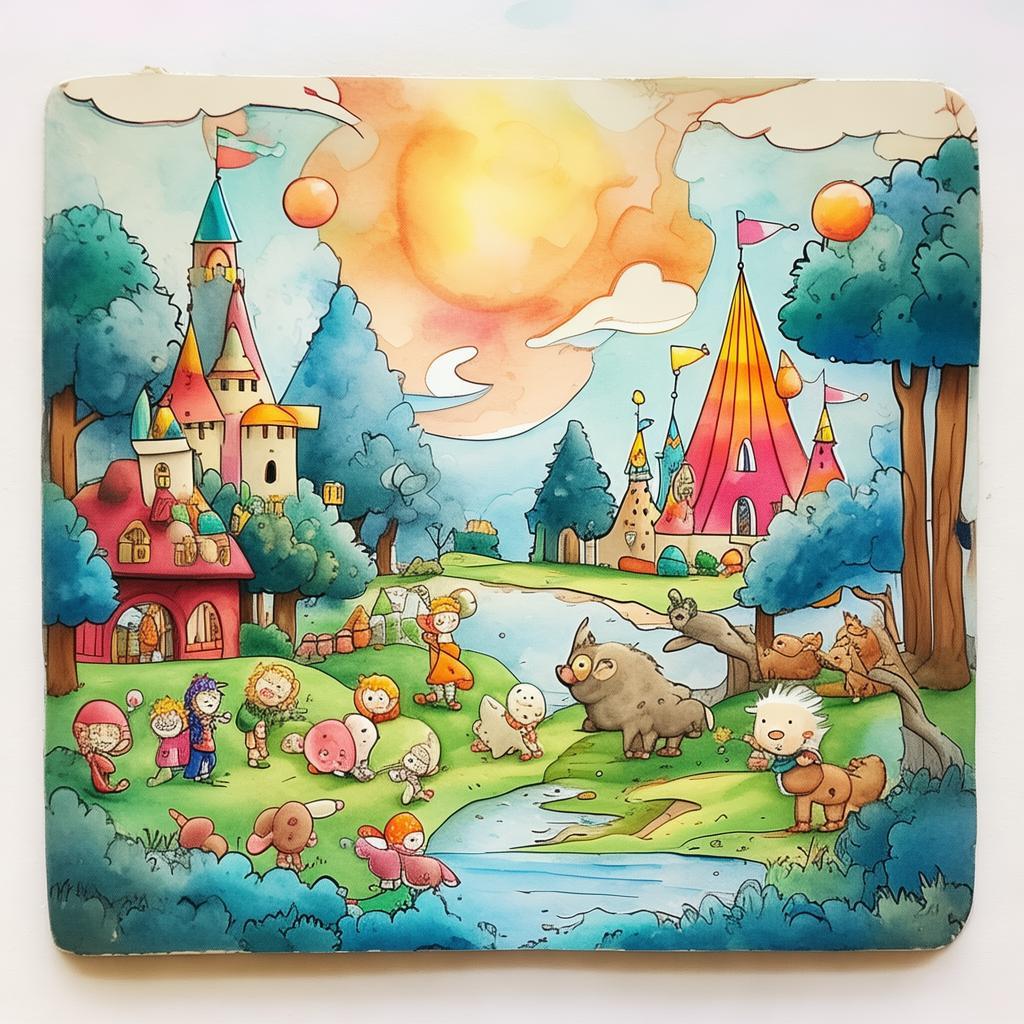
The note read, "The true treasure is the knowledge of your family's history. The rice fields are a testament to their courage and perseverance. You are the last descendant of the original rice farmers who first cultivated these lands."
Ming's eyes filled with tears as he realized the true meaning of the treasure. He had uncovered not just gold and jewels, but the legacy of his ancestors. He left the room with a newfound sense of pride and purpose, determined to honor his family's legacy and the spirit of the rice fields.
As he emerged from the tree, the sun was setting, casting a golden glow over the fields. Ming returned to his family, the story of his adventure fresh in his mind. The villagers gathered around, their eyes wide with amazement as Ming shared his discovery.
From that day on, Ming was no longer just the rice farmer's son. He was the keeper of a family secret, a guardian of a legacy that had spanned generations. The rice fields remained a source of wonder and inspiration, a place where the past and the future intertwined, and where Ming's journey had just begun.
✨ Original Statement ✨
All articles published on this website (including but not limited to text, images, videos, and other content) are original or authorized for reposting and are protected by relevant laws. Without the explicit written permission of this website, no individual or organization may copy, modify, repost, or use the content for commercial purposes.
If you need to quote or cooperate, please contact this site for authorization. We reserve the right to pursue legal responsibility for any unauthorized use.
Hereby declared.
